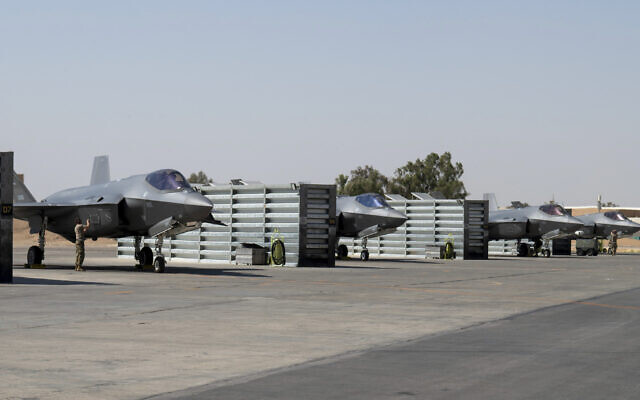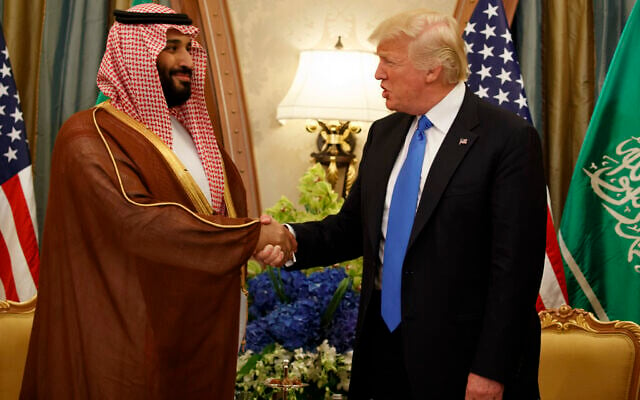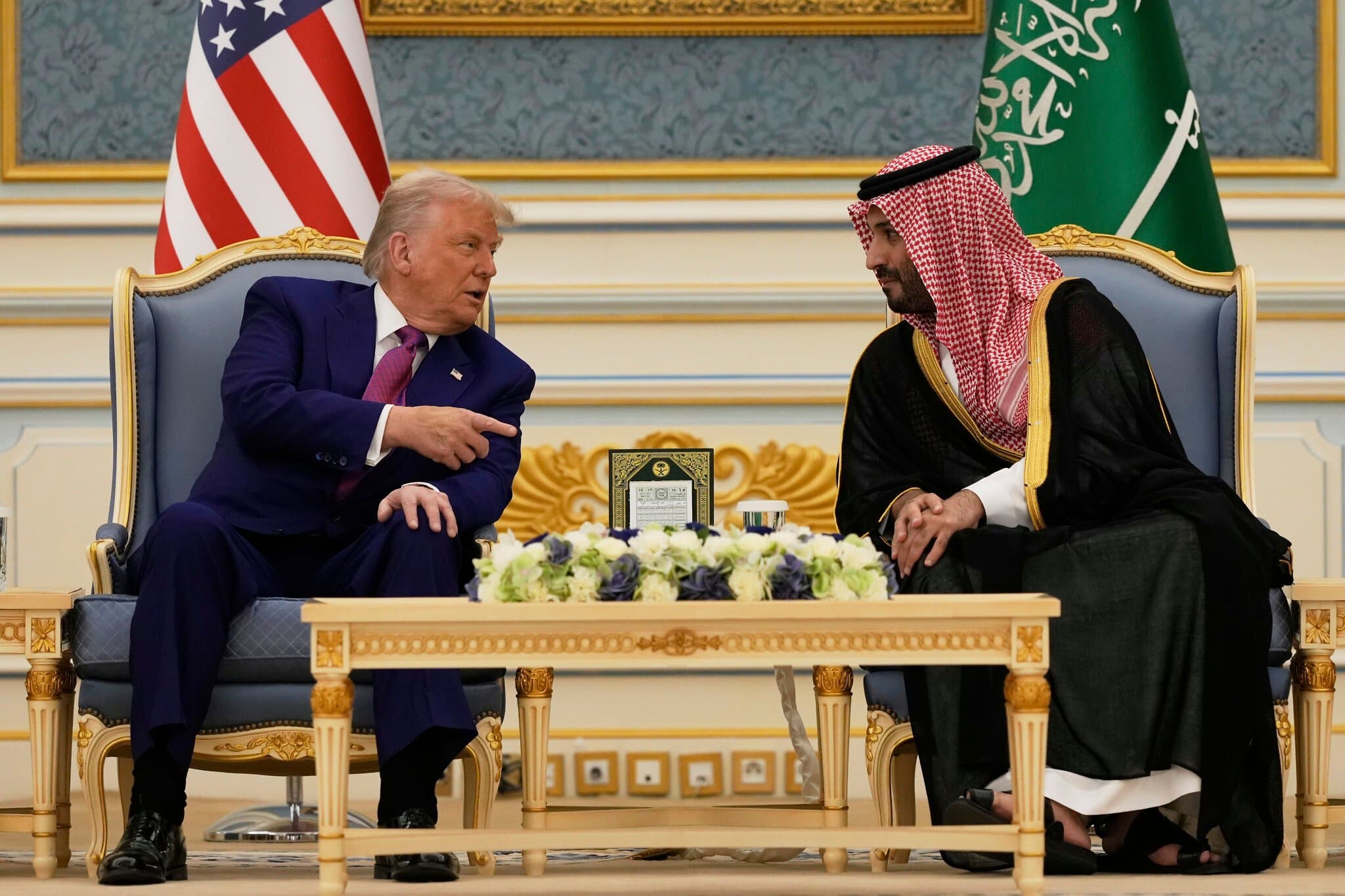WASHINGTON (Reuters) — US President Donald Trump will roll out the red carpet for Saudi Arabia’s de facto ruler, Crown Prince Mohammed bin Salman, on Tuesday for a visit expected to advance the sale of F-35 fighter jets and a host of business deals with the kingdom.
It will be the first trip by bin Salman, widely known as MBS, to the US since the 2018 killing of Saudi critic Jamal Khashoggi by Saudi agents in Istanbul, which triggered global outrage.
US intelligence concluded that MBS approved the capture or killing of Khashoggi, a prominent critic. The crown prince denied ordering the operation but acknowledged responsibility as the kingdom’s de facto ruler.
The warm welcome he will receive in Washington is the latest sign that relations have recovered from the deep strain caused by Khashoggi’s murder.
During a day of White House diplomacy, MBS will hold talks with Trump in the Oval Office, have lunch in the Cabinet Room and attend a formal black-tie dinner in the evening.
Trump hopes to cash in on a $600 billion Saudi investment pledge made during his visit to the kingdom in May. A senior White House official told Reuters that US-Saudi deals on technology, manufacturing, defense and more are expected.

Trump told reporters on Monday, “We’ll be selling” F-35s to Saudi Arabia, which has requested to buy 48 of the advanced aircraft.
This would be the first US sale of the fighter jets to Saudi and mark a significant policy shift. The deal could alter the military balance in the Middle East and test Washington’s definition of maintaining what the US has termed Israel’s “qualitative military edge.” Until now, Israel has been the only country in the Middle East to have the F-35.
Beyond military equipment, the Saudi leader is seeking security guarantees, access to artificial intelligence technology and progress on a deal on a civilian nuclear program.
“The Saudis will be spending a lot of money tomorrow on the US,” a senior White House official told Reuters on Monday.
Former US negotiator in the Middle East Dennis Ross, who is now at the Washington Institute for Near East Policy, said Trump wants to develop a multifaceted relationship that keeps Saudi out of China’s sphere.
“President Trump believes all these steps bind the Saudis increasingly to us on a range of issues, ranging from security to the finance-AI-energy nexus. He wants them bound to us on these issues and not China,” Ross said.

Trump is also expected to pressure MBS for Saudi to join the Abraham Accords and normalize relations with Israel.
The Saudis have been reluctant to take such a major step without a clear path to Palestinian statehood, a goal that has been forced to the backburner as the region grapples with the war against Hamas in Gaza.
Trump reached Abraham Accords agreements between Israel and Bahrain, the United Arab Emirates, Morocco and Sudan during his first term in 2020. In recent weeks, Kazakhstan — which already had diplomatic ties with Israel — agreed to join.
But Trump has always seen Saudi Arabia joining the Abraham Accords as the linchpin to achieving a wider Middle East peace.
“It’s very important to him that they join the Abraham Accords during his term and so he has been hyping up the pressure on that,” the senior White House official said.
Jonathan Panikoff, former deputy national intelligence officer on the Middle East, said that while Trump will urge MBS to move toward normalizing ties with Israel, any lack of progress there is unlikely to hinder reaching a new US-Saudi security pact.
“President Trump’s desire for investment into the US, which the crown prince previously promised, could help soften the ground for expanding defense ties even as the president is determined to advance Israeli-Saudi normalization,” said Panikoff, now at the Atlantic Council think tank in Washington.

